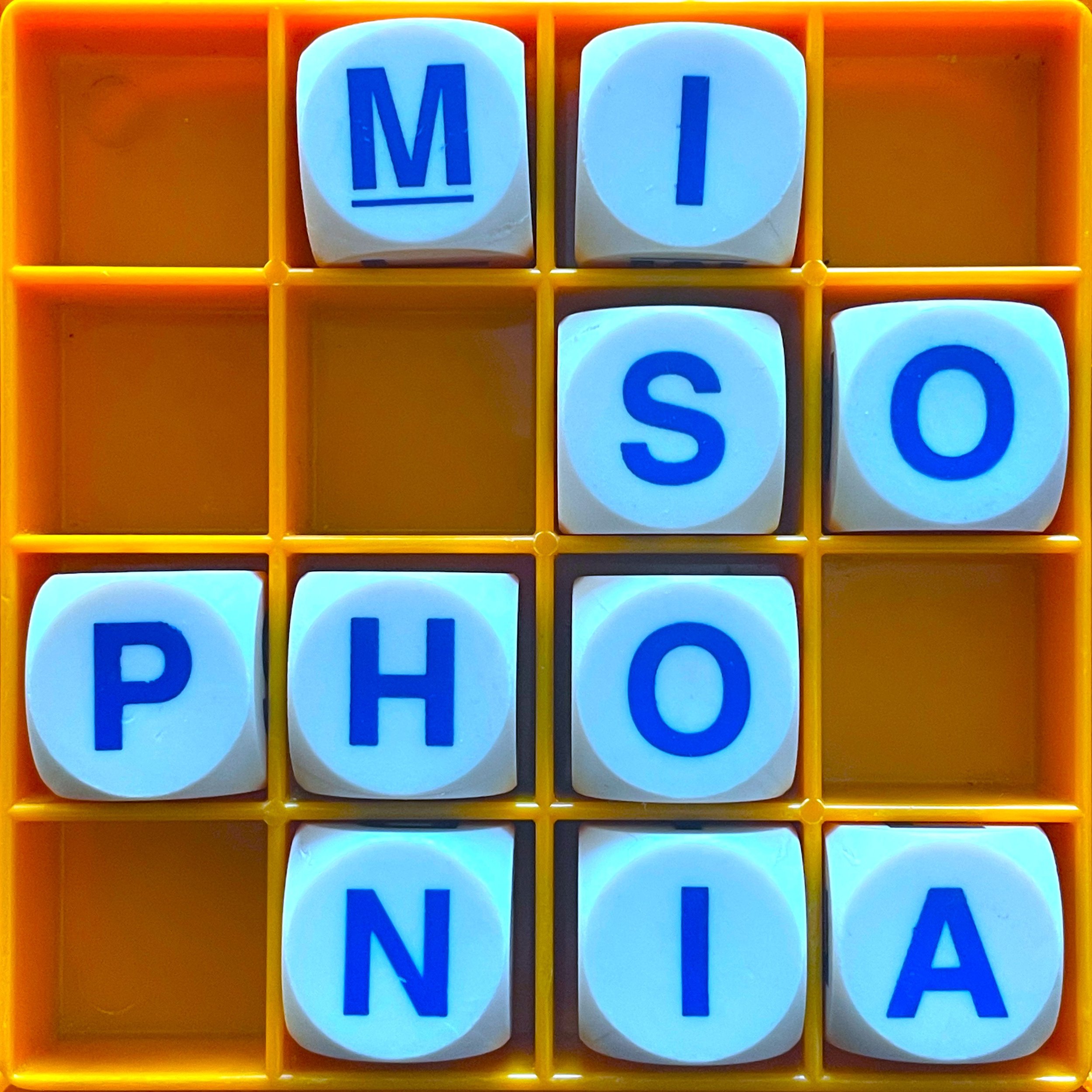MARY ROBINETTE KOWAL: Elsie does lie. I had just given her the "sleepy" button and I was in the kitchen. I was making lunch, and she goes to the button board and she says, "bedroom, sleepy, lie down." I'm like, "What a great contextual use. Yes, absolutely. Let's go take a little nap," and walk into the bedroom. And my cat doesn't come in, and I come back - and she's eating my cheese sandwich. And she has, multiple times, tried to send me out of the room in order to get my food. So when I'm making lunch and she starts talking to me and it's something like, “Go check the litter box” or something like that, food goes into the microwave and then I investigate whatever's happening.
HZ: How did that make you feel? You're like, “I can never trust her again?”
MARY ROBINETTE KOWAL: I don't know. I was like, oh, right. Cat.
Allusionist 204. Lexicat, part 1 transcript
HZ: It's a lot of deductive reasoning happening with how she's using language. Fascinating.
MARY ROBINETTE KOWAL: Yeah, it really is - which is why, when I get comments on videos where it's like, “Oh, this cat is just walking across buttons randomly,” I'm like, no, I have a dog that does that. I daily have moments where I'm like, okay, no, this is really a thing that's happening.
Allusionist 184 Misophonia transcript
JANE GREGORY: Misophonia is an extreme reaction to certain sounds and not an aversion to all sounds, but an extreme reaction to specific sounds. And the most common sounds are eating and heavy breathing and kind of repetitive sniffing and coughing and things like that. Which are also sounds that most people don't like the sound of, but people with misophonia will get a much more intense reaction, so it might be more like a fight or flight kind of response, a feeling of anger or panic as opposed to feeling annoyed or irritated or disgusted by the sound. And there's a bit more to it in terms of what goes on around the sounds as well. So it might be feeling trapped or helpless when they can't get away from these sounds. It might be listening out for sounds, even when there aren't any, or continuing to listen to see if the sound is still going, even if it's stopped. And doing things to organize your life around sounds or to cope with sounds. when they happen. So most people who don't like a sound will just deal with it. For people with misophonia, they have to do things to not be able to hear it or to be able to cope with their reactions to it.
HZ: Rather than just grimacing.
JANE GREGORY: Exactly. I mean, there's also some grimacing, but probably also some glaring.
Allusionist 144 Aro Ace transcript
HZ: How did it feel when you found the vocabulary to explain yourself?
LEWIS BROWN: Oh, it was so good. I think it's maybe a bit of a cliche to say, but it was like I'd found a puzzle piece. And I was like, "Oh! That makes sense. Right. Yeah. You know, that checks out." It really helps, I think, to have to have a term for it. Before I had words like aromantic and asexual, I don't know, I just had a bad feeling. When I assumed that I did feel attracted to other people and I was kind of thinking, do I just have some trauma or something? Am I just a selfish person? And these are a cruel things to be thinking about yourself. And then I was like, oh, wait, no, no I don't. I can think of all the ways in which I'm a pretty giving person. I care about the people that I care about quite a lot. Just not necessarily in the way that everyone thinks is the most important way.
Read moreAllusionist 129 Sorry transcript
MARJORIE INGALL: We dislike "for any hurt caused", "for anyone who was offended", because the "any" implies maybe it was no one. And it's clear that if you're apologising, someone was offended. It's not in any sort of airy-fairy situation. That's another way, again, it's all about distancing yourself from what you did.
HZ: Yeah, and removing agency.
MARJORIE INGALL: Yes.
SUSAN McCARTHY: If your castle is surrounded by people shouting with pitchforks and torches, and you're up on the battlements shouting, "Sorry if I caused any offence," you know you caused offence.
Allusionist 115. Keep Calm and transcript
HZ: Does being told to keep calm work?
JANE GREGORY: I can think of so many ways why it doesn't work.
Allusionist 114. Alarm Bells transcript
ROBIN WEBSTER: I am as guilty as any, having worked as a sort of techie professional in this for a long time of writing those sentences that go "By 2050, the trajectory of the curve will be movement this and carbon capture and storage," these paragraphs that just mean nothing to nobody. And they are about things which are far away in time, far away in place. We were using these words like ‘sustainability’ and ‘trajectory’ and ‘parts per million’. And I was like, what on earth is this language? It doesn't say anything.
HZ: ‘Parts per million’: that's the stuff to get people up and ready for action.
ROBIN WEBSTER: 450 parts per million, let's go!
Allusionist 109. East West - transcript
ÉTIENNE ROEDER: There are some words that still exist. There are some expressions you could still tell that these people that the people come from the East or the West. For example, in the Western part, they say ‘Plastik’, and in the Eastern part, I would say they say ‘Plaste’ because there was a company in the East - there was actually just one company in the East that produced plastics and that was called Plaste und Elaste, and because of that, all the people would call plastics ‘Plaste’. And you you could still tell today if someone says ‘Plaste’ and instead of ‘Plastik’ that this person is probably from the Eastern part.
ESTHER-MIRIAM WAGNER: ‘Plastetüte’ - plastic bag. I mean I remember going to school with a plastic bag and being sent home because it was a West German bag. This was a very precious item - you would keep a ‘Plastetüte’ for months and you would reuse it and reuse it and reuse it until it was just tatters. That was a precious object.
MATTHIAS EINHOFF: My son, when he tries to identify if someone is coming from a West German or East German family, he asks them how they call the thing that you put your bathroom things in: East Germans say ‘Waschtasche’ and West Germans say ‘Kulturbeutel’. And that’s the ultimate identifier whether you come from a East or West German family.
Read moreAllusionist 108. Enjoy! - transcript
SARA BROOKE CURTIS: An interesting thing with ‘enjoy’ is that it's become so common, because it’s so normal, so many people do it in all the different restaurants, to such an extent that there are restaurants that you could not say 'enjoy'. That was their biggest pet peeve, was saying ‘enjoy’. And it was massive.
HZ: Why?
SARA BROOKE CURTIS: Because they didn't want their servers to act like robots and they thought that if you said 'enjoy' that people would feel like they're anywhere, and that you're not expressing anything; you're just saying this thing that people say all the time.
HZ: Where does it come from? Is there this cabal like the Pantone colour thing where it's like, "This year everyone will be wearing forest green" - is there that for service vocabulary?
SARA BROOKE CURTIS: Yeah, I think there is. I really do think there is.
Allusionist 81. Shark Week - transcript
HZ: There used to be a term ‘goatmilker’, it was a bird that was believed to suck milk from goats at night, but it was also slang for sex workers, and therefore slang for vulvas.
HRISHIKESH HIRWAY: Wow.
HZ: Licentious men were known as ‘goatmilkers’, because they were frequenting these sex workers in the 17th century when this word was around.
HRISHIKESH HIRWAY: Again, not enough poetry in that for me.
HZ: Too vulgar for you?
HRISHIKESH HIRWAY: Yes, for my delicate sensibilities.
Allusionist 74. Take A Swear Pill - transcript
HZ: So why is swearing good for you?
EMMA BYRNE: It's good for us socially, in that it is this really useful telegraph of our emotions; it's a good way of avoiding physical conflict. It's also a really good way of bonding, of saying "I hear you. I feel the strength of your emotions," like saying "Fuck that shit" when someone comes to you with something that's obviously upset them. Sometimes it needs to be something stronger than just putting your arm around their shoulder going, "Oh there, there". It's also really useful individually, both for a cathartic side of things when you do something painful or frustrating, letting it out there.
HZ: Another reason swearing is good for you: it relieves pain.
EMMA BYRNE: That is really potent and surprisingly well documented. When you stick your hands, for example, in freezing cold water, you can stand it for about half as long again if you’re using a single swear word than if you're using a single neutral word. Not only that: when afterwards you're asked about how painful that experience felt, you report that cold water as feeling much milder than the water that you had your hand in while you were using some neutral word. So we know that it's really handy for dealing with pain that's being inflicted on you. We also know that it's quite useful, for example, among people who are suffering from long term conditions - so not pain that's been inflicted in a lab, the pain that is ongoing. So managing particularly the emotional aspects of long term pain, a good swear can be cathartic.
Read more










